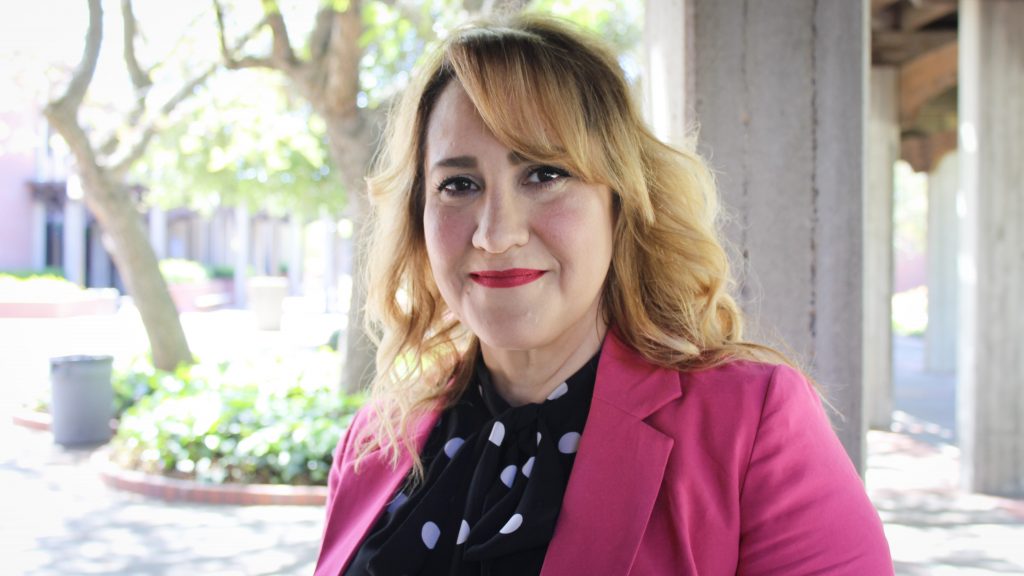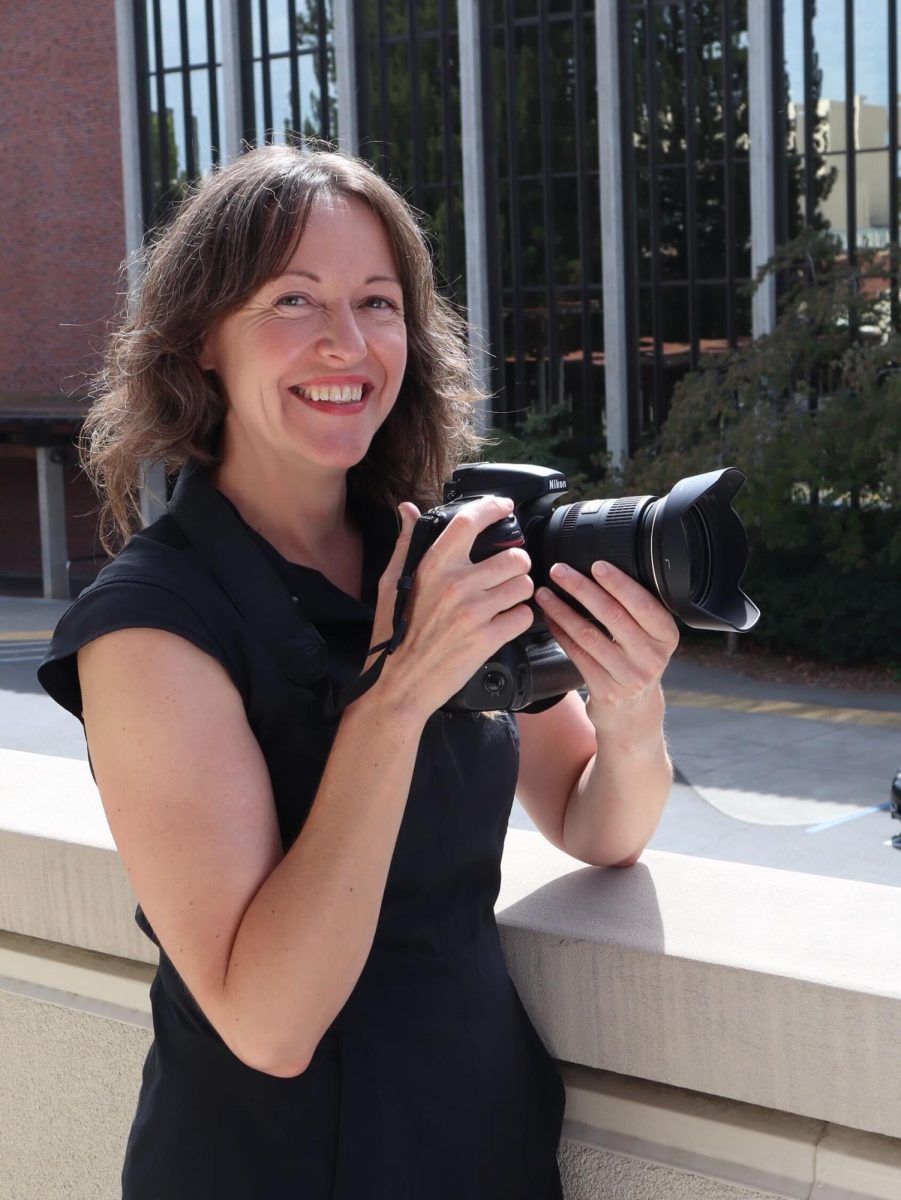Carmen Perez
Guest Writer
Email: carmenp330@gmail.com
Dirty. Sticky. Cracked. Callous. These are the hands of a female farmworker. The woman sits across from Guillermina Naveja and explains her dilemma. Naveja doesn’t see the farmworker. She sees a woman who is working to make a better life for herself and her family.
The woman needs help. She is in a physically abusive relationship and doesn’t speak English, doesn’t know where to go and doesn’t know whom to turn to. Naveja hears stories like this on a daily basis. Naveja is an official counselor in the legal department at the Mexican Consulate in Sacramento. For seven years, Naveja has been a triple-threat, juggling full-time roles as an employee, wife and mom, and City College student.
At the age of 46, Naveja manages to help Mexican immigrants succeed in the U.S. in her day job, cook dinner for her family, and study for college exams herself, sometimes until 2 a.m. She never thought she would return to college, but after coming to the U.S. in her early 20s, she knew that in order to get the so-called American Dream, she would have to learn English first.
“I was scared to go to school because I didn’t speak English,” says Naveja. “It was difficult to learn new subjects in a whole different language.”
Naveja, born in Sacramento but raised in Mexico, had obtained her bachelor’s degree in tourism in Mexico, but her degree was not accepted in the United States. A co-worker recommended that she enroll at City College, so she signed up for English as a Second Language courses. She decided to take a full load of classes and became a full-time student. She says returning to college was quite difficult. During her second semester, she explains that she was a victim of bullying.
“There was a student in my child development class who was supposed to do a group presentation with me, and two other students told the professor that she didn’t understand my English and couldn’t be in my group,” says a teary-eyed Naveja.
Naveja says the student constantly made fun of her accent. Naveja felt insecure about the way she spoke and was at the brink of dropping out. But two students told her to stay in the class. They said they would do the group project with her. Consequently, the group presentation turned out to be the best in the class, according to her professor.
At the same time, she met her current City College counselor, Mauricio Gonzalez. Her counselor never sugar-coated anything. He told Naveja what she needed to do to succeed. She says she was taken aback by how honest he was, but it was exactly what she needed at the time.
“Guillermina came to Sac City not speaking English,” says Gonzalez. “She joined the Sac City ESL program, which many immigrants take to become proficient in English and continue with their lives. Ten percent, if that, actually decide to continue their education and get a bachelor’s degree.”
Naveja is part of that small percentage, and Gonzalez challenged her to be the role model her daughters needed. If she wanted them to have a better life, he says, then she had to show them how. She was also facing financial aid problems halfway through her City College pilgrimage. Gonzalez stressed that, unfortunately, the way the district handles financial aid is not what he would want, especially for first-generation and immigrant students who are struggling to pay for school. He believes that financial aid is an entitlement to students who already have a handful of obstacles to overcome.
With that information, Naveja knew she had to continue working full-time, even overtime, to pay her way through college.
“Guillermina is the perfect poster child for ESL students who need the motivation to continue their education, even with life’s obstacles,” Gonzalez says.
Naveja’s husband and daughters have been her biggest fans and continue to encourage her. Her oldest daughter, Jennifer Loza, who is a U.C. Davis student, recalls seeing her mom up at one or two in the morning, studying for finals.
“I would sometimes stay up with her just so she would have company,” says Loza. “She has always been resilient and hasn’t given up.”
Loza credits her mom with giving her motivation when she stresses about her own school work. She says she is in awe of how hard her mom has worked in starting at the bottom of the totem pole to get to where she is now.
In her job at the consulate, Naveja helps women, children and families from all walks of life get acquainted with the United States. She says her dream is to help those who feel they can’t succeed in this country because of their age, language or ethnicity. She tells them anything is possible.
Though she has two associate degrees, Naveja says she wants to major in psychology because she would love to be a therapist for women and children. She also desires to spend her Saturdays giving free counseling to those who can’t afford therapy.
Naveja graduated from City College in 2014 with degrees in social science and liberal arts. At the graduation ceremony, she said it was the best day of her life when Dolores Huerta, the famous civil rights and labor activist, gave the commencement speech. Naveja says Huerta’s famous phrase pushes her to continue her college journey.
“When Dolores Huerta said, ‘Si, se puede’ (‘Yes, we can,’ in English), I thought to myself, ‘I can, and I will,’” says Naveja.


































